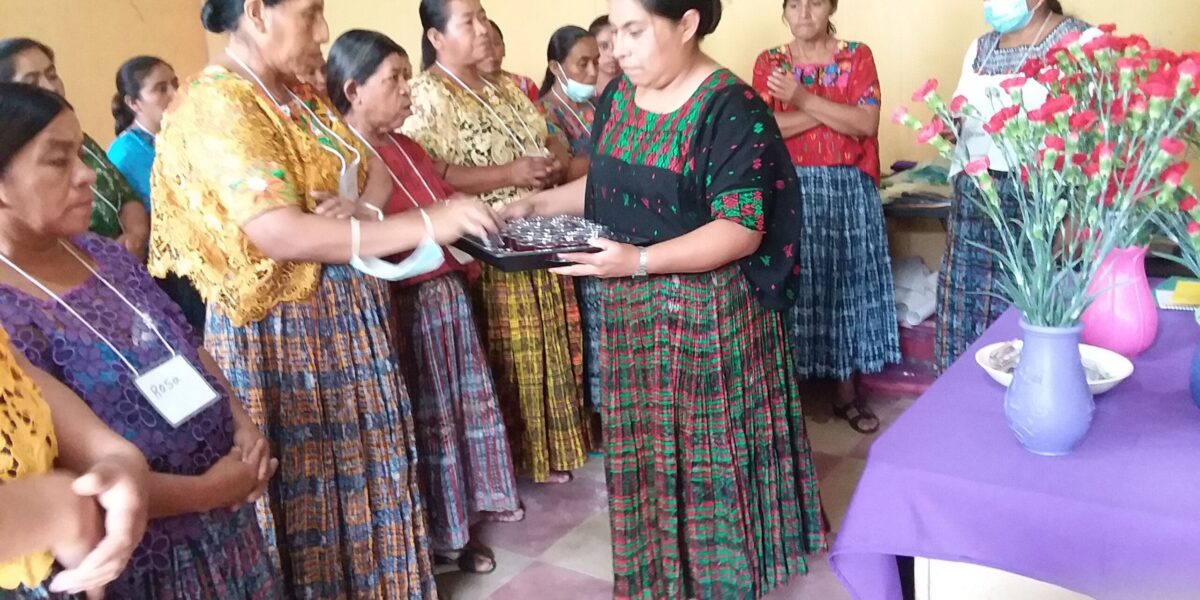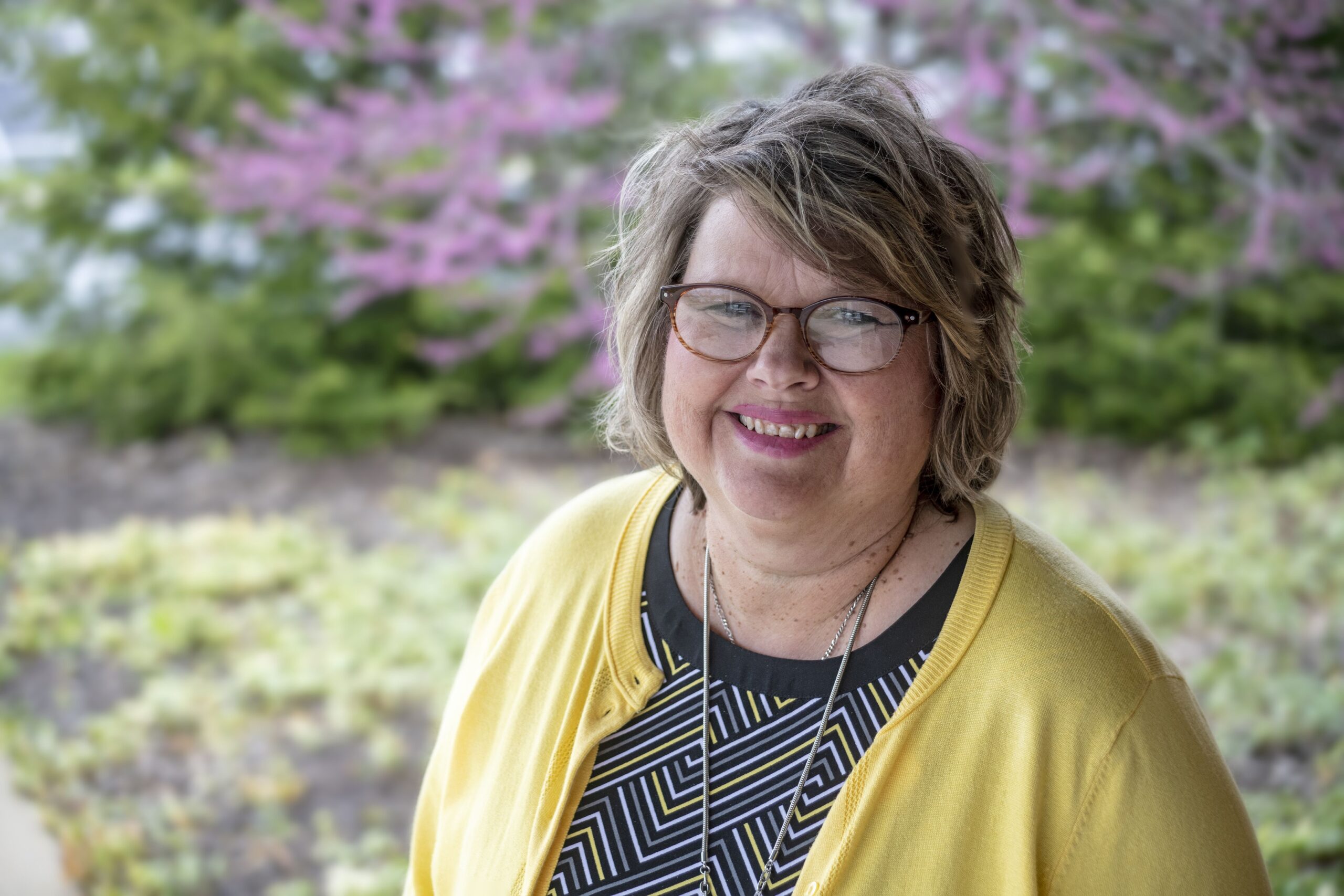NEWTON, Kansas (Mennonite Mission Network) — As Kekchi women told their stories in a July 27-28 trauma healing workshop in San Pedro Carchá, Guatemala, the Holy Spirit breathed the message of their dignity as women of God.
Five Kekchi Mennonite women leaders, along with Deb Byler, who serves with Mennonite Mission Network in Guatemala, have facilitated four trauma healing workshops. Another workshop is scheduled this year to reach more of the women within the Kekchi church’s 135 congregations.
A sharing exercise during the July workshop allowed the women to release their pain and freed them to receive more of God’s healing, hope and joy, some of the 19 participants said. This occurred as they lay down on a large cloth on the floor, with their heads to the center, and shared negative messages they’ve received about being a girl or woman.
The general sense in the Kekchi culture is that females don’t need to be educated and should only work in the home, take care of the children and cook, said Byler, who works with the women in the Kekchi Mennonite Church.
"They are sometimes seen as having no potential beyond that and are considered less intelligent than men," Byler said. " They are sometimes beaten, and stories of physical abuse come up sometimes in workshops. Fathers don’t generally value girls as much as boys."
Participants found a deeper sense of God’s love and presence, which replaced the lies they had heard about their worthlessness.
"We learned that we women were created in the image of God," said participant Olivia Chiquin Xol, while Alicia Pa added, "Our sadness turned to joy." Participant Zoila Esperanza Cao Toc said she learned that "God will help take away my pain."
Most of the participants left their homes early in the morning, and some traveled as many as three hours, for the two-day event.
"The way in which Jesus related to and affirmed women was a theme throughout the workshop," Byler said. Together, the group studied 10 Bible verses that affirm those who have been wounded by life. Then, they divided into small groups, each with a Kekchi leader.
The small group experience was new to Maria Choc Pop."It was difficult, because I’ve never done anything like this before," she said. "But I was encouraged by what we did. The good thing about this workshop is that we learned how to overcome difficulties."
Just as in the larger circle of sharing, painful memories emerged during the small group time for the women, several of whom shed many tears.
"As the women began to articulate the truth about themselves, as revealed through Jesus’ treatment of women, the mood lifted," Byler said. "They affirmed each other and themselves. They talked about grief and the losses they experienced in life."
Finally, the women shared their dreams for the future and explored what might keep them from realizing those dreams. "They identified the resources they have, through God’s power, to overcome their obstacles," Byler said.
Participant Ana Acte believes the workshop will enhance her ministry. "We learned a lot, so that we’ll be able to help other women," she said. "I would like to come again to this workshop."
Laughter flowed along with tears, as the women said their goodbyes and returned home, where they now have many opportunities to create new patterns. "In some sense, this is just a small beginning," Byler said. "But in a culture where people do not have access to pastoral counselors and therapists, this was significant for the women. All praise to God who is the healer of us all."
In February 2022, Sister Care leaders Rhoda Keener and Carolyn Holderread Heggen will lead a Mennonite Women Sister Care retreat to prepare Kekchi women. These trainees will then train more leaders to use the materials in the Kekchi language to lead more workshops.
"I am beginning to see some patterns of change," Byler said. "I see much more confidence within the women and more mutual respect among them.
"I think that is due in part to learning to trust each other by sharing similar pain, experiences and struggles, which bring deeper bonding. I am so gratified to hear their testimonies of transformation."
Participant Gloria Esperanza Sagui Choc said she felt like she was starting a new life. "This workshop has given me so much joy. And our hearts and souls will be so happy when we return home."








